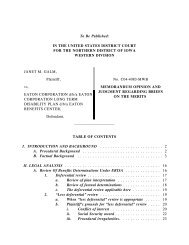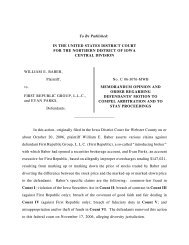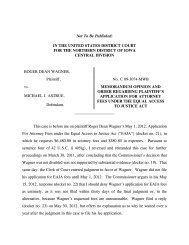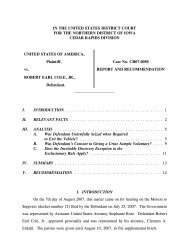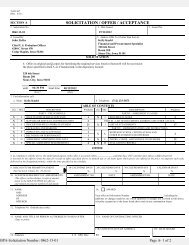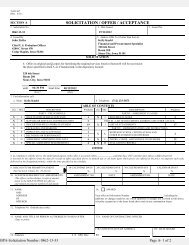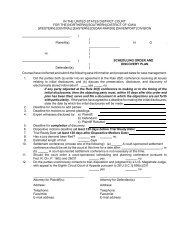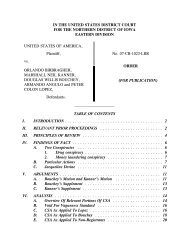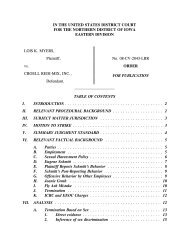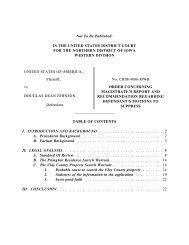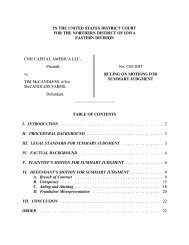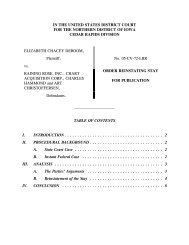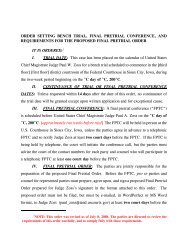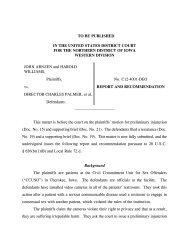Shannon v. Koehler - Northern District of Iowa
Shannon v. Koehler - Northern District of Iowa
Shannon v. Koehler - Northern District of Iowa
Create successful ePaper yourself
Turn your PDF publications into a flip-book with our unique Google optimized e-Paper software.
e ‘dealt with as the circumstances <strong>of</strong> the particular case might indicate.’” Newton, 206<br />
F.3d at 774-75 (quoting FED. R. EVID. 803(5), Advisory Committee Notes); see, e.g.,<br />
United States v. Riley, 657 F.2d 1377, 1386 (8th Cir. 1981) (determining that the victim’s<br />
taped and written statements qualified as recorded recollections where, although she could<br />
not remember the details <strong>of</strong> the events, she testified at trial that she remembered making<br />
the statements and that, at the time <strong>of</strong> the statements, she remembered what had happened).<br />
Other courts have expressed concern about the accuracy <strong>of</strong> recorded statements<br />
made when the declarant was intoxicated or under the influence <strong>of</strong> drugs. Nevertheless,<br />
where other sufficient indications <strong>of</strong> accuracy exist, courts have admitted these statements<br />
as recorded recollections. See United States v. Porter, 986 F.2d 1014, 1017 (6th Cir.<br />
1993) (even where declarant was “screwed up on drugs” when making the statement and<br />
was not sure she had told the truth, statement was recorded recollection where declarant<br />
admitted making it, made it soon after the incident and under penalty <strong>of</strong> perjury, appeared<br />
disingenuous when stating that she did not remember whether the statement was accurate,<br />
and the statement was internally consistent and consistent with other undisputed evidence<br />
in the case); United States v. Edwards, 539 F.2d 689, 692 (9th Cir. 1976) (even though<br />
declarant was drunk when he made the statement, it qualified as a recorded recollection;<br />
declarant testified that he remembered making it and, though he did not remember the<br />
underlying facts, believed it accurately reflected his recollection at the time it was made).<br />
But see Gilbaugh ex rel. Gilbaugh v. Balzer, No. CV99-1576-AS, 2001 WL 34041844,<br />
at *1 (D. Or. Feb. 26, 2001) (finding recorded statements not admissible as recorded<br />
recollections where declarant was drunk at the time <strong>of</strong> the incident and drunk when he<br />
made the statements, did not remember the incident, and wanted nothing to do with<br />
litigation).<br />
49



